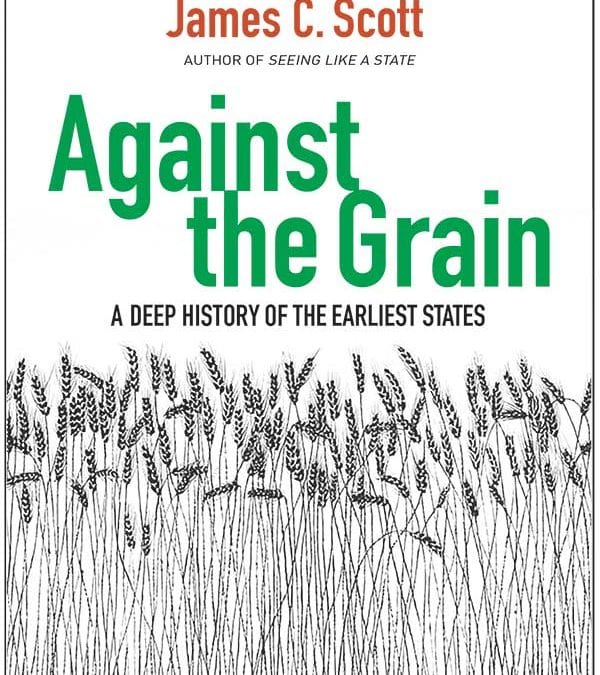In his recently published book Against the Grain, Jim Scott ’54 shared compelling ideas about why many “schoolbook lessons” about the first states in the world and early civilizations are wrong. Although the subject matter is a bit outside his area of expertise, as Jim specializes in studying peasants and agriculture life of Southeast Asia, the book aggregates the current state of knowledge of early Mesopotamian domestication in order to diagnose why the modern world is facing extinction of species and climate change. Jim is the Sterling Professor of Political Science, Professor of Anthropology, and Director of the Agrarian Studies Program at Yale University.
“We are in a jam ecologically and environmentally, but why is that?,” said Jim. “How did we come to this point of [the epoch of] anthropocene, where geologists believe that mankind and our activities are maybe the greatest danger to the planet? The first thing to do is, if you’re in a mess, to try to figure out how you got there, so my job is not a medication or a cure. My job is diagnosis of how this illness developed, which is the reason why I wanted to go back to the first states when large numbers of people formed agrarian societies to understand why we’re here now.”
What most surprised Jim during his research for Against the Grain was that all human infectious diseases did not exist before humans began to live as domesticated human beings with domesticated animals and plants.
“Measles, mumps, the flu… they did not exist,” said Jim. “These are diseases of civilization and the reason they are is because early civilizations were the first time that huge numbers of people and animals were crammed together in a small space. Our evidence is in the skeletons from early agrarian societies as those bones show those people were smaller than those who lived outside the grain area. The skeletons of those who lived in early states showed signs of nutritional deficiencies and disease. They were less healthy than people who had a more varied diet and were not subject to those diseases, indicating civilization is bad for your health.”
Jim has dedicated his career in academia to studying agricultural life since the Vietnam War, when he became interested in peasant uprisings and rebellions. Since peasants have been the largest social class in world history, he thought it a worthy and honorable subject to devote his life to studying. Originally he studied political uprisings among peasants but, as Jim is a farmer who raises sheep, Scottish cows, chickens, and bees, he has expanded to rural peasant life.
Against the Grain can be ordered online through the Yale University Press by searching the title at yalebooks.yale.edu or at bookstores.

